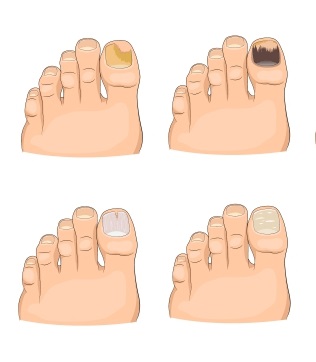What causes tonsillitis?
As mentioned above, the tonsils are thought to have a role in the body’s immune system. They are the first line defence against pathogens getting into your body through your mouth. This explains why they are at increased vulnerability to infections.
Tonsillitis is most commonly caused by viruses, for example adenovirus, influenza virus, rhinovirus and coronaviruses. They account for about 25-45 % of cases. On the other hand, tonsillitis may also arise due to bacterial infections. The most common bacteria causing tonsillitis is Group A Streptococcus (GAS). It is more common in less developed countries compared to developed countries.
Acute tonsillitis is when the symptoms last for around 3-4 days. However, it can also persist for up to 2 weeks. You are said to have recurrent tonsillitis if you experience several different episodes throughout a year. Chronic tonsillitis is characterized by a persistent sore throat and bad smelling breath.
What are the risk factors for tonsillitis?
Young children are more at risk of having tonsillitis compared to adults. This may be due to the declining immune function of the tonsils in your body as from adulthood. It can also be due to the fact that children are in more close contact with school friends and germs. Therefore, they are more prone to catching viruses or bacteria.
Signs and symptoms

You may experience the following symptoms if you have tonsillitis:
- Red throat
- Swollen tonsils
- White spots on the tonsils
- Painful swallowing
- Enlarged lymph nodes in the neck
- Fever
- Voice changes
- Foul-smelling breath
- Stomach upset
- Headache
- Fatigue and weakness
- Nausea
Some other symptoms that can be associated with tonsillitis include:
- Stuffy nose
- Cough
- Red eyes
- Sneezing
- Pain in the ear
- Oral ulcers
Making a diagnosis
To make the diagnosis of tonsillitis, your doctor will start by taking a detailed history from you. This will involve asking questions about your symptoms, the progress of the condition and other related questions. He/she will then proceed with a physical examination focusing on your throat. He/she will have a look at your tonsils using a torch, looking for any obvious signs of tonsillitis. A good clinical history and physical examination is most of the time sufficient to make the diagnosis. Your doctor may request some tests to confirm the diagnosis as well as to guide in the treatment. These tests include:
- Complete blood count: For this test, a sample of your blood will be withdrawn for further analysis. This calculates the concentration of the different cells found in your blood. If your white blood cell count is raised, it indicates the presence of an infection.
- Throat swab: In this procedure, a sample of secretions from the back of your throat is collected using a swab. This is then sent for further investigations in order to know which pathogen is causing the disease. This is mostly used if a bacterial infection is suspected.

What is the treatment for tonsillitis?
Most cases of tonsillitis can effectively be managed at home as it can resolve on its own. Some measures that can be taken include:
- Get plenty of rest
- Drink warm liquids such as broths, tea and warm water
- Drink plenty of fluids
- Gargling with homemade saltwater. This can be prepared by mixing half teaspoon of salt with around 8 ounces of warm water. Do not swallow the preparation.
- Use an air humidifier
- Suck on lozenges that can provide relief to your sore throat
- Avoid smoking
- Use over the counter pain killers such as acetaminophen or anti-inflammatory drugs such as ibuprofen.
If a bacterial tonsillitis is suspected, your doctor will have to prescribe you antibiotics such as penicillin for 10 days. It is advised to take the full course of the antibiotics, even if you are already feeling better, to prevent the development of resistance. If you are allergic to penicillin, your doctor will prescribe an alternative.

Tonsillectomy is the surgical procedure done to permanently remove the tonsils. This is not done in everyone. However, it may be indicated if you have recurrent episodes of tonsillitis, chronic tonsillitis or one that is resistant to treatment with antibiotics. It is also advised to remove your tonsils if you have obstructive sleep Apnea, difficulty to swallow or an abscess in your tonsils.
What are the complications of tonsillitis?
Usually, viral tonsillitis does not lead to complications. On the other hand, complications may arise from bacterial tonsillitis. These include:
- Formation of a peritonsillar abscess which is an accumulation of pus between your tonsils and throat wall
- Obstructive sleep Apnea which is a disorder in which there is disturbed breathing pattern during sleep
- Rheumatic fever which is a widespread inflammation in the body affecting joints and body movement
- Glomerulonephritis which is a condition affecting the kidneys and their function
Complications from tonsillitis are usually rare and it is considered as a benign condition.
How can tonsillitis be prevented?
Catching or spreading tonsillitis can be prevented by taking these simple steps:
- Washing your hands thoroughly and frequently
- Avoid sharing food and bottles
- Staying at home if you have the condition
- Cover your mouth and nose when coughing or sneezing

Prognosis
In general, the prognosis for tonsillitis is excellent and recovery takes place within a few days. Most people recover with at home treatments and may not require any further medications. Complications are rare but may arise in certain cases, mostly of bacterial origin. Complications are becoming rarer with advancements in medical and surgical treatment for tonsillitis. Tonsillitis is generally considered as a benign self-limiting condition.
Source:
J. Alastair, I. and Simon, M., 2016. Davidson's Essentials of Medicine. 2nd ed. London: ELSEVIER.
Parveen, K. and Michael, C., 2017. Kumar & Clarks Clinical Medicine. 9th ed. The Netherlands: ELSEVIER.









